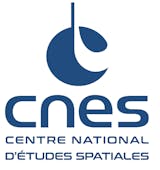Cédric Virmontois (S’10–M’12–SM’19) received the Engineering degree in Physics from the Institut National des Sciences Appliquées (INSA), Toulouse, France, in 2008 and the Ph.D. degree in Microelectronic from the Institut Supérieur de l’Aéronautique et de l’Espace (ISAE Supaero), Toulouse, France, in 2012. His Ph.D. research focused on displacement damage-induced degradation effects in CMOS image sensors. He modeled the degradation of the sensor parameter of performances, especially the dark current and it associated random telegraph signal and he deduced hardening-by-design techniques to mitigate space radiation effects in CMOS imagers. Cedric presently works for the Centre National d’Études Spatiales (CNES) in Toulouse, France, in the Technology & Digital Directorate. He started as Detection Chain specialist from 2012 to 2018, his work involves the development of imagers for future space imaging missions, electro-optical characterizations, analysis and testing of imagers. He extends his researches to several solid state imagers dedicated to visible and infrared imaging using ground and in-flight data in order to find generic ways to predict and mitigate space radiation effects. Cedric has also contributed to the understanding and modeling of dark-current Random Telegraph Signals (RTS) in image sensor. He contributed to the discovery of total ionizing dose-induced RTS in silicon-based image sensors. In 2014, he was in charge of the Supercam Remote Micro-Imager, the French contribution to the Mars 2020 Perseverance rover, where he was particularly active to push the selection of CMOS image sensor for this space mission. Since 2019 he is recognize as an Expert at CNES in the field of solid-state image sensors and radiation effects. Since 2021 he is the head of the Opto-Electronic detection department. Cedric has served the IEEE community as reviewer for the IEEE Nuclear and Space Radiation Effects Conference (NSREC) and for publications in the IEEE Transactions on Nuclear Science and Transaction on Electron Devices. He has authored or co-authored more than 80 papers in peer-reviewed scientific journals. He has received several award including the Radiation Effects Early Achievement award in 2020, four best conference papers and the IEEE Paul Phelps Continuing Education Grant for recognition of contributions to the fields of nuclear and plasma.
Experience
-
–presentPh.D. microélectronique, Centre national d’études spatiales (CNES)
Education
-
2012isae supaero, physique / Microélectronique
- Article Feed
- Joined


